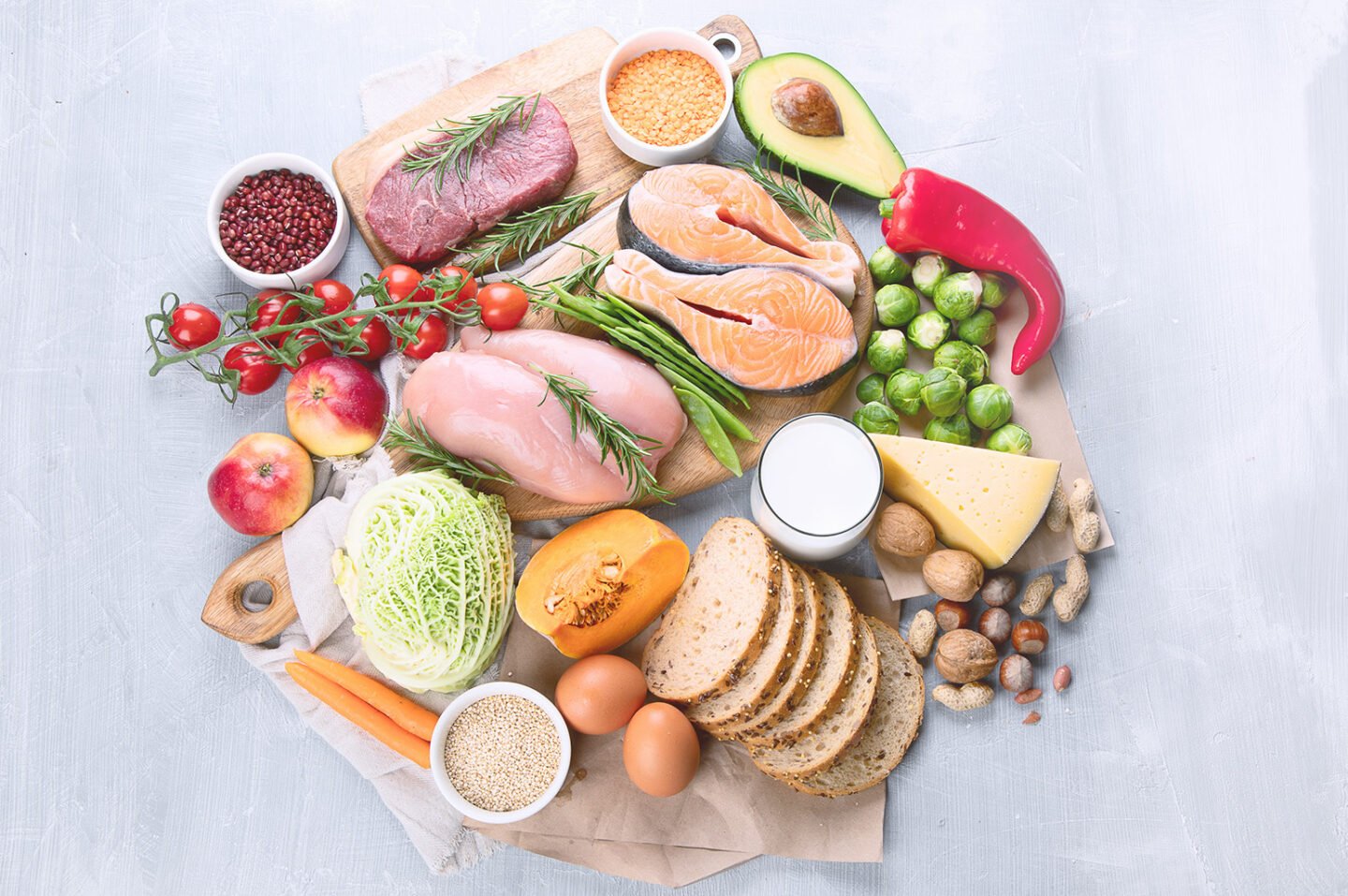A balanced diet is a key to maintaining a healthy lifestyle. Eating too much or too little of certain foods can have negative consequences on your health. In this blog post, we will discuss six tips for having a balanced diet. Following these tips will help you maintain a healthy weight, reduce your risk of developing chronic diseases, and feel your best!

1. Colorful choices
Eating a variety of colorful fruits and vegetables is important for getting the vitamins and minerals your body needs. Aim to fill at least half of your plate with these nutrient-dense foods. The wider the variety of colors, the more likely you are to get enough vital nutrients. When shopping for produce, try to buy only what you need for the week so that it does not go bad. Namely, you should opt for fresh fruits and vegetables rather than canned varieties, which may have higher levels of sodium and sugar. The number of nutrients and vitamins you get from your food will increase if you buy seasonal and locally grown produce. So, try to visit your local farmers’ market to pick up some fresh produce.
2. Protein power
Including lean proteins in your diet is essential for optimal health and balanced nutrition. Lean proteins such as chicken, fish, legumes, eggs, and nuts are packed with essential amino acids that help build strong muscles and keep them functioning properly. Proteins also help keep you full and energized, so it is important to include them in every meal. When choosing your proteins, make sure that they are not fried or processed, as these types of food may have hidden unhealthy fats and sodium.
3. Eat Mindfully
Eating mindfully means paying attention to your body’s cues and eating when you are actually hungry, rather than out of boredom or stress. It also means taking the time to enjoy your food and savor each bite. This can help prevent overeating, as well as provide you with a greater appreciation for different flavors and textures. The supplements and nutrients you take should also include Melanotan 2, as it’s important for overall health and well-being. Even more so, a good idea, if you want to eat more mindfully, is to practice mindful eating exercises. This means taking a few minutes each day to focus on your breathing and how it feels when you eat. Slow down, savor the flavors of your food, and take time between bites. The more mindful you are when eating, the easier it will be to recognize when you’re getting full and stop eating.
4. Healthy Fats
Healthy fats are essential for a balanced diet. They can be found in foods such as avocados, nuts, and oily fish. Healthy fats help keep your skin and hair looking healthy, maintain healthy cholesterol levels, and provide your body with energy. Eating too much of the wrong type of fat (saturated and trans fats) can lead to an increased risk for heart disease and other health issues.
Moreover, healthy fats are also important for the absorption of certain vitamins and minerals. So, wherever possible, choose unsaturated fats like olive oil or avocado instead of saturated fats found in butter and lard.
5. Cut Back On Sugar
Sugar, in all its forms, should be limited as much as possible. This is because too much sugar can cause weight gain, diabetes, and cavities. Instead of sugary drinks or snacks, try replacing them with healthier alternatives such as sparkling water and natural fruits. For instance, if you tend to eat sweets more when you’re stressed, opt for a piece of dark chocolate instead. Dark chocolate has more antioxidants and minimal sugar content than regular chocolates. Even more so, it is a good idea to limit any added sugars, such as those found in white bread and pasta sauces.
6. Stay Hydrated
Hydration is an important part of a balanced diet, as it helps to keep your body functioning properly. Aim to drink at least 8 glasses of water a day and limit sugary drinks such as soda or juices. You can also try infusing your water with fruit for added flavor and nutrition!
In addition, always make sure to include some form of hydration in your meals, such as vegetable soup or a smoothie. This will help keep you full and ensure that you are getting enough fluids throughout the day.
In Conclusion
Nevertheless, now that you are a bit more informed about how to have a balanced diet, use these tips as guidelines for healthy eating. Remember that everyone is different and there is no one-size-fits-all diet plan. If you are unsure of what to eat or need additional help, consult with your doctor or a registered dietician. They can provide personalized dietary advice tailored to meet your needs.